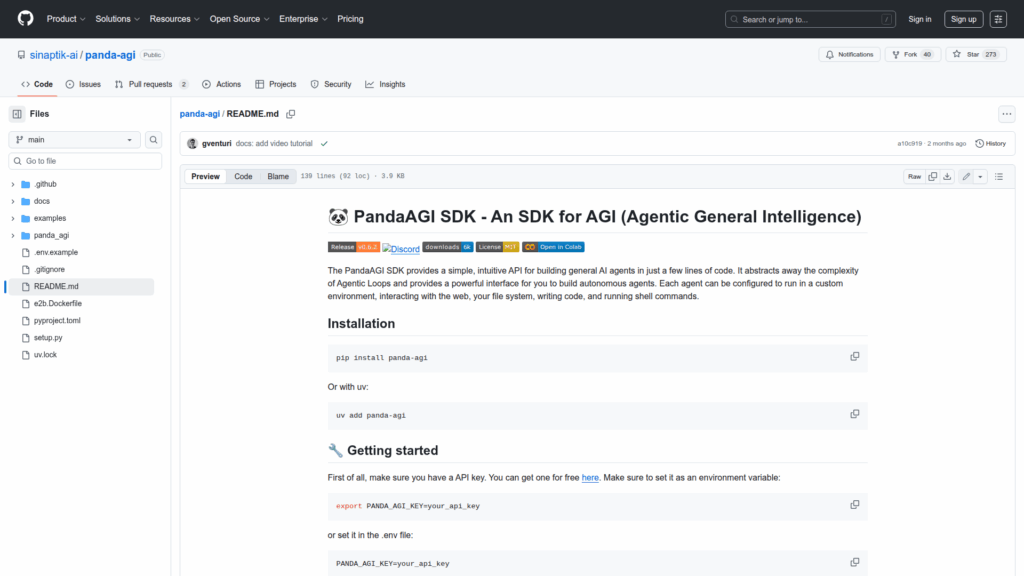panda-agi
Basic Information
PandaAGI SDK is a developer-focused software development kit for building autonomous, agentic AI applications. It provides a high-level, opinionated API that abstracts Agentic Loops so developers can create agents that interact with the web, the local file system, run shell commands, and perform tasks like generating reports, dashboards, and websites inside a workspace. The repository includes examples, a UI application, and an interactive Colab notebook to try the SDK without local setup. The README documents installation via pip, required environment variables such as PANDA_AGI_KEY and optional TAVILY_API_KEY for web search, and basic usage patterns using an Agent and LocalEnv. The project is implemented for Python 3.8+ and distributed under the MIT license. The repo aims to let engineers prototype and run autonomous agents with minimal boilerplate.








